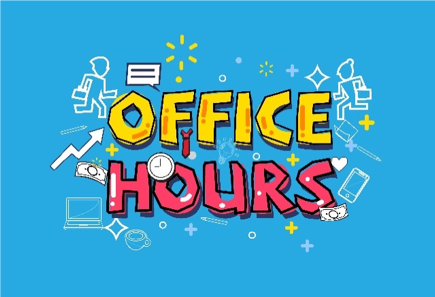When working in my traditional corporate job, office hours were a real thing. I am not talking about banker hours either, Office Hours are different.
Office Hours are – arrive by 8:00 am and then boast when you don’t leave until after 8 pm. People will say it is not a thing, but those are probably the same people who can point out those who do not arrive until 9 am.
We have all known for a long time that it is not about the hours you clock, but the work you produce. Why then, has the concept of Office Hours persisted. Will it persist?
Companies who are looking to offer attractive employment opportunities for top talent and for the rising workforce, must realize that they are negotiating in a new currency, freedom. Freedom from being at work at a specific time, freedom from being constrained to a desk.
Corporations though still hold strong to the idea of the effectiveness of “in person corporate work.” The problem with this is, that they lose employees, that are otherwise effective for them, because they are looking more at scheduling than skills.
I have very young children, and at this time in my life, it is a near impossibility to make it to an office every day by 8 am. At the same time, I do have a lot to offer a company, experience, work ethic, and loyalty to a company that I feel is meeting my needs as much as I am meeting theirs.
Companies who feel as this is a concept that is just about millennials wanting more work life balance are missing out on other sectors that have competing responsibilities at home, and therefore struggle with the rigid idea of Office Hours.
Most of the families that I know, at least one spouse has a side hustle or a plan to start something on their own. A lot of that is due to the need to sustain income but also the desire to maintain control of what that that looks like for their life. Control of their level of freedom.
The work force is also changing, the value that people place on flexibility is higher, and companies need to respond to compete.
A 2017 Gallup poll showed 43% of Americans work remotely some of the time, and 53% rank a roll allowing a work life balance as essential when evaluating a new role.
There is a lack of data in this area, Zenefits did release a benchmark report in 2018, surveying hundreds of small businesses. (Access data via the link below)
- 67% of organizations offer some form of flexible work arrangements
- 73% of employees said flexible work arrangements increased their satisfaction at work
- 78% of employees said flexible work arrangements made them more productive
- 77% of employees consider flexible work arrangements a major consideration when evaluating future job opportunities
I would be curious to hear if work flexibility is a thing at your company, are you talking about trying to adjust processes and policies to be more flexible? Is your work environment still traditional and are you racing to your desk to arrive by 8 am? Email me at Erica@mchenryconsulting.net.
Oh, the HR person in me, has to remind you to be mindful implications of FLSA when changing schedules. 🙂

